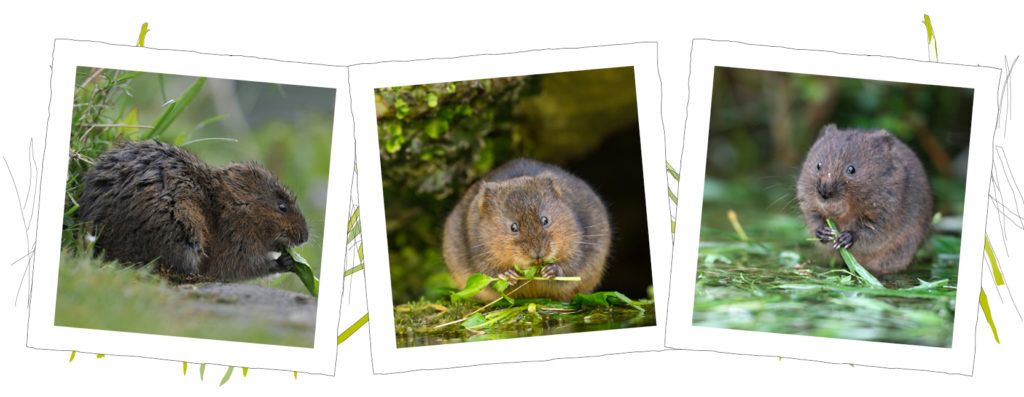Water vole appeal
I'll help water volesWater voles are at risk of extinction in Britain
Water voles used to be found in nearly every waterway in England, Scotland and Wales, but have suffered a devastating decline. By the end of the 1990s we’d lost more than 90% of our nation’s water voles. Threats to water voles include habitat loss, pollution, and being hunted by American mink.
In 2015 we launched a national field survey to see how water voles were doing. There hadn’t been a survey of this kind for over 20 years. We’ve continued that survey each year to check where water vole populations are holding on. At each water vole site, we see whether water voles are still present, what the habitat is like and whether mink are present.

Sadly, water voles are still facing an uphill battle for survival as their numbers are perilously low. This year I ran online training courses for ecologists and new volunteers, and set up new sites so volunteers searched even more waterways for water voles. Training is needed as water voles can be very hard to find. There are specific signs to look out for such as their tic-tac shaped droppings, neatly nibbled plant stems left in little piles outside their burrows, and the characteristic ‘plop’ sound they make when they dive into the water. I’d like to continue to take the survey to even more sites, encouraging volunteers to look for water vole signs in more parts of the country.
To improve water vole habitat, I also visit people living near rivers and give advice on how to restore water vole habitats and link them up across the wider countryside. Most people want to see water voles back on their land. They’re great little ecosystem engineers. Their digging to create extensive burrow systems improves the soil condition. Their constant grazing also helps control dominant plants, resulting in bankside habitats with great plant diversity. This creates sunny and shady areas, helping amphibians, invertebrates, birds and bats.
Water voles have suffered one of the worst declines of any British mammal. Our water vole monitoring programme is now entering its 10th year and is building a better and up-to-date picture of where our remaining water voles are. And when we know where they are, we can better protect them from their greatest threats.
Yours sincerely,
Emily Luck, Water Vole Officer
Thank you.
Header image Mark Bridger | Shutterstock. In-text image credits Craig Jones, Mark Bridger | Shutterstock, Mike Lane iStock

